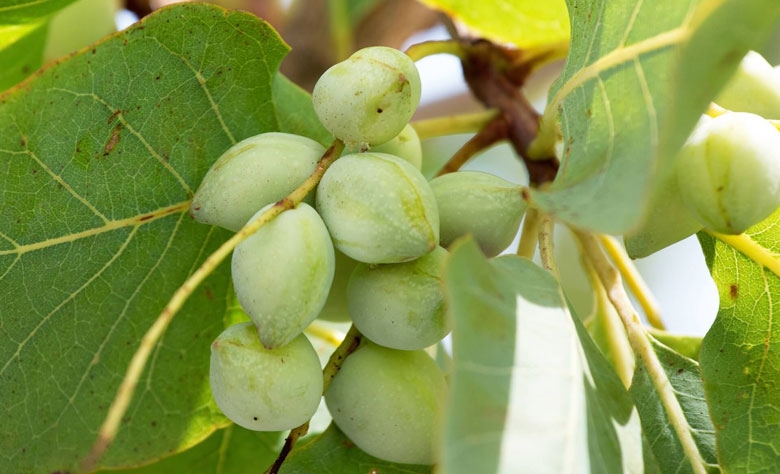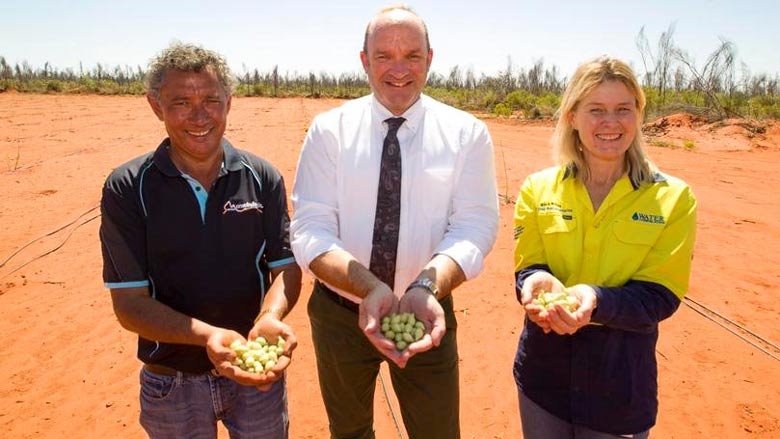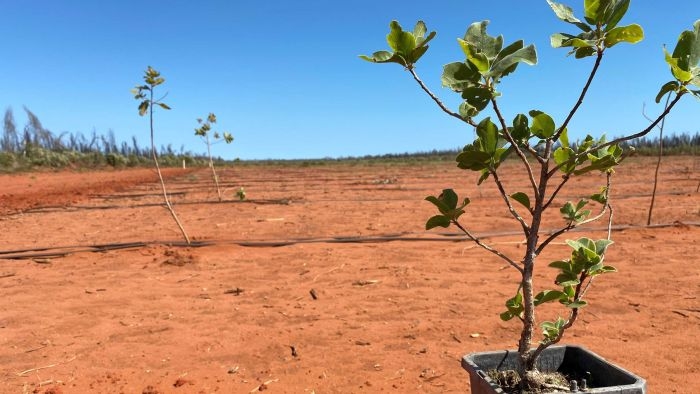Bush food, meet tech
Tech-friendly Mamabulanjin Aboriginal Corporation is leading an alliance of Aboriginal community-controlled native food producers in the Top End.
Broome, Western Australia: Having partnered with 7 other Aboriginal-owned enterprises to form the Northern Australia Aboriginal Kakadu Plum Alliance, Mamabulanjin Aboriginal Corporation is innovating to benefit Aboriginal growers and global consumers of Kakadu plums.

Known to Yawuru people as gubinge (pronounced gubb-inj), Kakadu plums are high-value produce:
- they have way more vitamin C than oranges and lemons
- they are an excellent source of antioxidants—gallic acid and ellagic acid
- they have powerful preservative and antimicrobial properties (great for mixing with frozen foods to extend their shelf life, for example)
- the cosmetics industry loves them for their skin benefits
- they are naturally termite-resistant.
The Alliance won $455,100 of funding through the Commonwealth Department of Agriculture’s traceability grants program. So now, it is embarking on its project to certify the authenticity and provenance of this native ‘superfood’. The aim is to find a way for data about the provenance of the plums to stay with the plums. Customers will be assured that they’ve received the real thing; the risk of fake plums entering the market will be mitigated, and producers will receive the right returns.
The project is also likely to be replicable in many other supply chains. Mamabulanjin hopes that it will be useful to other Aboriginal and Torres Strait Islander farmers in particular. CEO Neil Gower said, ‘Ultimately, we hope this project will also benefit other Indigenous producers of Australian native foods.’

Neil Gower, Mamabulanjin CEO, with Tim Bray, CEO of Kimberley Development Commission and Sharon Broad, regional manager of Water Corp on 13 August 2021. Photo credit: Broome Advertiser
Mamabulanjin was established in 1985 to foster employment opportunities and economic independence for Aboriginal people. Its objectives have always emphasised collaborations, both within and beyond the corporation.
Mamabulanjin plays a unique role in the alliance. All the other members are harvesting wild trees. By contrast, Mamabulanjin is planting orchards and leading the research and development (R&D) to optimise the Aboriginal community-controlled native food business. The recently funded project involves using iso-elemental analysis (reading traces of the soil in the fruit to determine where it grew) to verify the provenance, and blockchain (secure, transparent transactions) to authenticate each link in the supply chain.
Concurrently, the corporation is doing other R&D work, to:
- increase yields—through supplementing insect pollination with manual pollination, and by carefully managing the ‘fertigation’ (irrigating with dissolved fertiliser)
- select future generations of the species for tastier fruit and easier processing.

New plantings in the orchard
In 2019 Mamabulanhin made a deal with the government of Western Australia, for a multi-year cost-free lease over 200 hectares of state government land to establish a native fruit tree orchard. The plan was to clear nothing—to plant for savannah enrichment—but it proved too difficult to control pests and hazards such as fire, and too hard to harvest the fruit. Instead, Mamabulanjin has cleared strips of land 100 by 500 metres, keeping the majority of natural vegetation around to encourage bush bees and other pollinating insects and to prevent erosion.
So far, Mamabulanjin has planted 890 trees in that orchard, and is tending to 1500 more mature trees (gubinge fruit after 5 or 6 years) in another 2 locations. The plan is for 25,000 trees on 30 hectares, where each hectare has the potential to bring in $150,000. The corporation is also considering expanding to other species, such as pindan walnut and tea leaf.
Having withstood the Covid storm, during which Mamabulanjin’s operations retracted somewhat, the corporation, its orchards and the alliance of Top End bush food producers are thriving.
Mamabulanjin is only selling wholesale. All the other partners sell retail, but since the fruits ripen in late wet season at this time of year kakadu plum products are mostly sold out. If you can’t wait until February for pure Kakadu plum, you can try a Kakadu plum spice mix from Bawinanga Aboriginal Corporation.